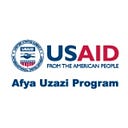Youth Champions: Catalysts for change
Trained Youth Champions leading positive change in their communities through interventions that increase access to quality health services and help to conserve the environment
Jackline Chepkoech gave birth to her child when she was 17 and in high school. Like many teens, she did not have the knowledge and skills to protect herself from early pregnancy.
Jackline is not alone. She knows many girls from her village of Kiptagich in Kuresoi North, Nakuru County, who get pregnant in their teens.
In Kenya, roughly one in every five teenage girls between the ages of 15–19 have started childbearing, according to the demographic and health survey.
One in five girls aged 15–19 years in Nakuru County have begun childbearing, but the rate is much higher in Kuresoi. Of those from this age group who are married, only 18 per cent use modern contraceptives compared to 37% nationally.
Jackline was lucky because she resumed her studies two years after giving birth and graduated from high school. Many girls are not as fortunate. They drop out of school into early marriages and a life of motherhood they are not prepared for.
Immediately after high school Jackline tried small businesses from baking and selling mandazi, buying and selling maize and groceries. In 2017, she got married to the father of her child.
Now 23 years old Jackline is a well-known advocate for young people’s reproductive health rights. She champions their access to information that will enable them to understand the challenges of growing up and navigate the journey to adulthood.
Jackline is among a cadre of youth volunteers that USAID’s Afya Uzazi Program has trained to provide health education to the community as part of an intervention that combines health promotion and environment conservation.
“While I was in Form 1, started speaking out against cases of early pregnancy and the suffering I saw many girls undergo,” says Jackline. “I did not know I would be affected.”
“Afya Uzazi was is a dream come true because it reinforced by work in the community,” says Jackline.
“I advise young mothers to deliver in hospital and teach them the importance of ante-natal and post-natal services, and family planning,” says Jackline. “At the same time, I create awareness on the importance of the environment and encourage households to plant trees on farms, establish kitchen gardens, harvest rainwater and use energy saving stoves,” she says.
Jackline has always been active in youth affairs, so it came as no surprise when the community nominated her to be trained as a volunteer. The messages she and other volunteers spread in the community are an important part of Afya Uzazi’s population, health and environment (PHE) intervention.
PHE integration into the Afya Uzazi project has ensured the project simultaneously improves access to health services while also helping communities manage their natural resources in ways that improve their health and livelihoods while conserving the critical ecosystems they depend on.
Volunteers like Jackline trigger conversations to enable communities have a better understanding of the linkages between healthy timing and spacing of pregnancies, natural resource management and improved livelihoods.
These conversations are an essential vehicle to achieving PHE objectives to improve women’s health, advance gender equity, increase the participation of women in natural resource management, have more men involved in family planning, strengthen livelihoods, and increase the communities’ resilience.
Story by George Obanyi, Photo by: May Livere
